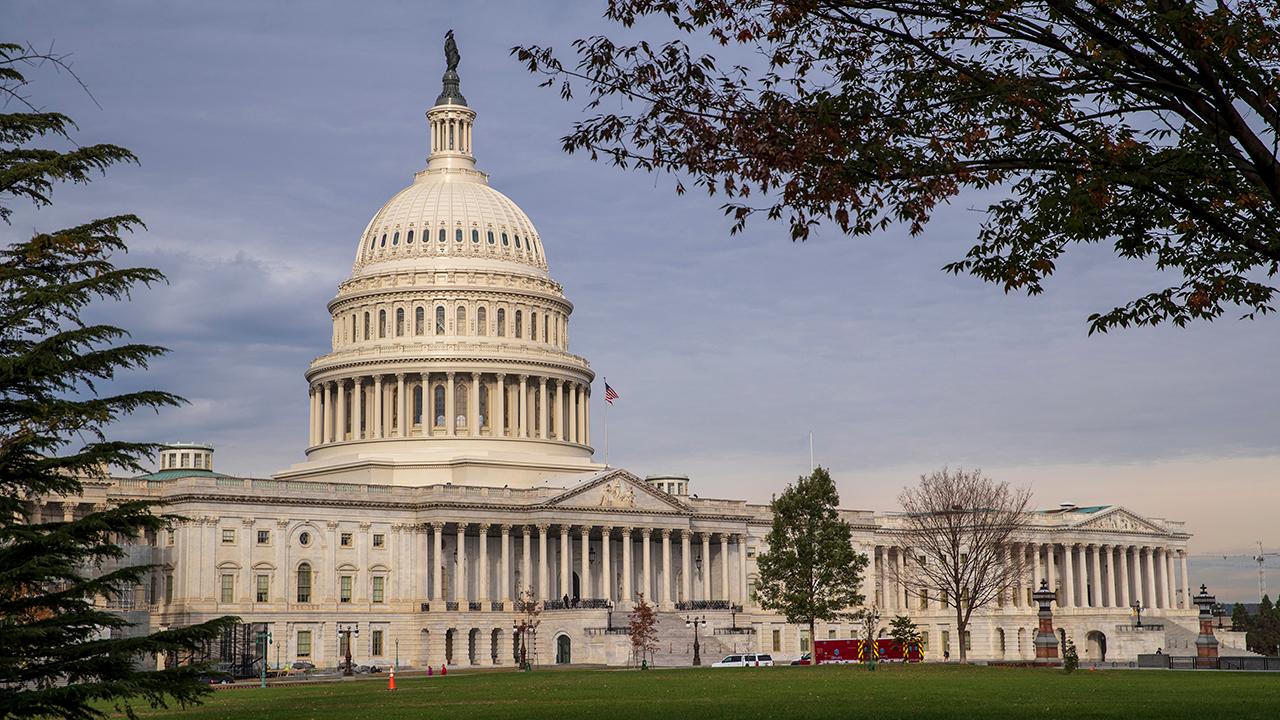2019 'Pig Book' finds government's pork addiction getting worse
Citizens Against Government Waste’s (CAGW) just-released 2019 Congressional Pig Book exposes 282 earmarks in fiscal year (FY) 2019, 22 percent more than FY 2018. The cost of earmarks was $15.3 billion, a 4 percent increase from FY 2018 and the largest amount in nine years. Since FY 1991, CAGW has identified 111,144 earmarks costing $359.8 billion.
This year’s pork-barrel exposé features earmarks for notoriously wasteful projects like $1.8 billion for 16 additional F-35 Joint Strike Fighters that the Pentagon did not request (even though the program is eight years behind schedule and on track to become the most expensive weapon system in U.S. history, with a lifetime operation and maintenance cost estimate of $1.2 trillion).
The 2019 Pig Book also includes a slew of absurd nature-related earmarks.
Congress earmarked $65 million to help recover Pacific Coastal Salmon, $13.8 million to manage wild horses, $12 million to control aquatic plants, $9 million to quarantine fruit flies, $7.9 million to purchase fish screens, and $863,000 to eradicate brown tree snakes in Guam.
Perhaps the most flagrant earmark is the $16.7 million for the East-West Center, added by Sen. Brian Schatz, D-Hawaii. His earmark represents the center’s entire budget, keeping it alive even though its counterpart, the North-South Center, stopped receiving federal funding in 2001. The East-West Center should be able to stand on its own without taxpayer support as well.
As earmarks under the 2011 moratorium continue to rise, the bipartisan appetite for pork has intensified. House Majority Leader Steny Hoyer, D-Md., said that earmarks, “can be great instruments of good,” and Rep. Tom Cole, R-Okla., has said, “I think in the end, the case for [earmarks] is more powerful.”
House Appropriations Chair Nita Lowey, D-N.Y., announced in February that earmarks would not formally return for FY 2020, even though she admitted she was a “strong proponent” of the practice and is seeking a bipartisan agreement to revive them. On the other side of the Capitol, Senate Republicans approved Sen. Ben Sasse’s, R-Neb., recent conference motion to adopt a permanent ban on earmarks after a “heated” debate behind closed doors.
Far too many members of Congress have forgotten why the moratorium was necessary in the first place. The movement gained traction due to the tireless leadership from the late Sen. John McCain, R-Ariz., who pointed out that after high-profile boondoggles such as the Bridge to Nowhere, and a decade of scandals that resulted in jail terms for congressmen and lobbyists, Washington could no longer keep the practice in place. Another anti-earmark champion, former Sen. Jeff Flake, R-Ariz., saidthat,“There’s nothing swampier than earmarks.”
As Sen. McCain explained regarding those making the case for a return to earmarks,“The problem with all their arguments is: the more powerful you are, the more likely it is you get the earmark in. Therefore, it is a corrupt system.”
In the 111th Congress, when the names of members of Congress who obtained earmarks were made public in the appropriations bills, the 81 House and Senate appropriators, or 15 percent of Congress, had 51 percent of the earmarks and 61 percent of the money. Restoring earmarks would reinstate this grossly unfair and inequitable system.
As founding father and former President James Monroe wrote to Congress in 1822 about congressional spending authority, it “should be confined to great national works only, since if it were unlimited it would be liable to abuse and might be productive of evil.” Nearly 200 years later, earmarks still corrupt Congress, waste taxpayer money and erode trust in government.
CLICK HERE TO GET THE FOX BUSINESS APP
The best way to safeguard taxpayers is for Congress to enact a permanent, statutory ban on earmarks.
Tom Schatz is the President of Citizens Against Government Waste. CAGW is the nation’s largest nonpartisan, nonprofit organization dedicated to eliminating waste, fraud, abuse, and mismanagement in government.




















